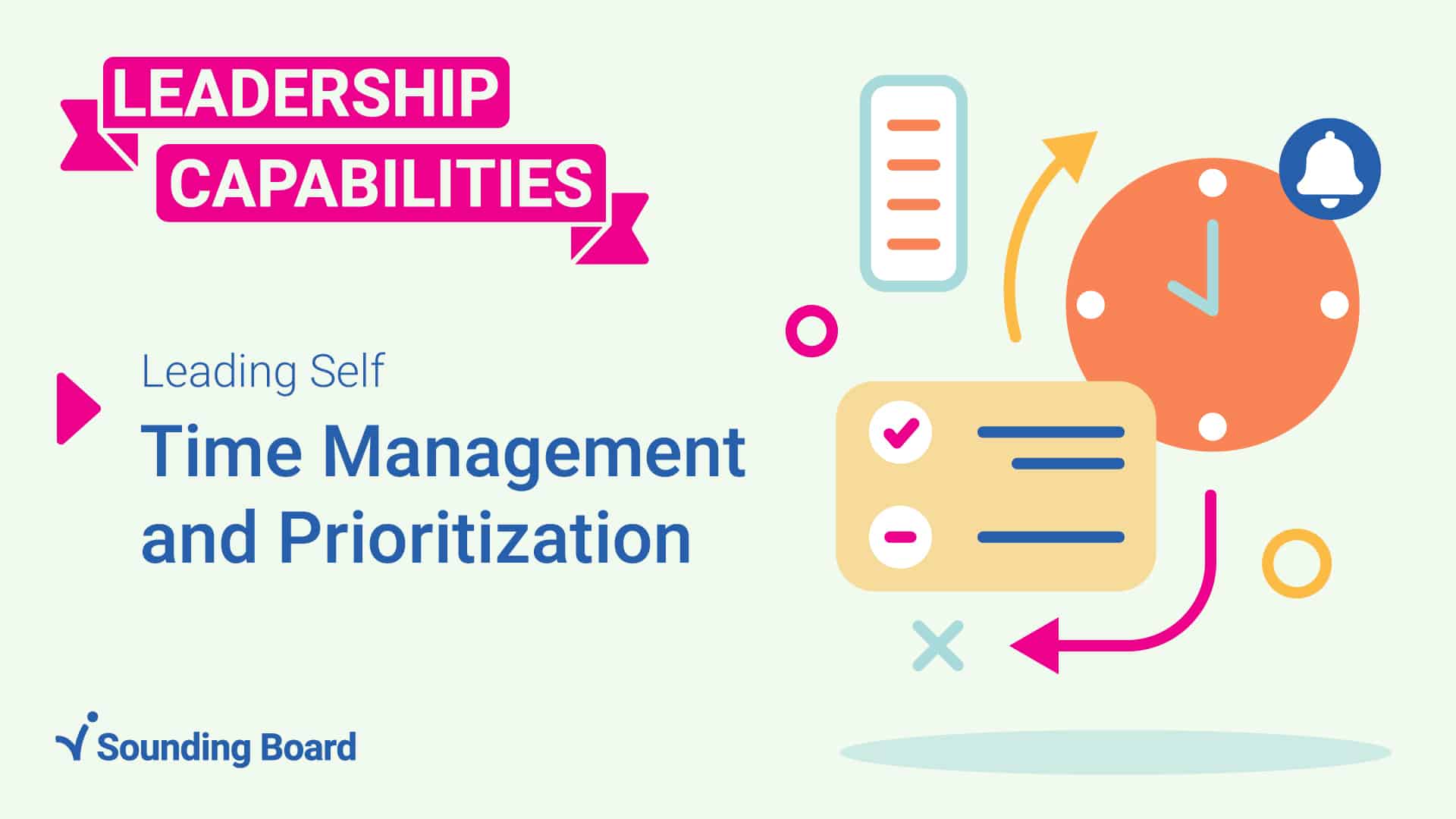Time Management for Leaders: Mastering the Art of Productivity
Effective time management is one of the most critical skills a leader can possess. It not only affects personal productivity but also impacts team morale, project timelines, and overall organizational success. In today’s fast-paced work environment, mastering time management is no longer optional; it’s essential for leaders aiming to achieve their goals and lead their teams effectively.

Why Time Management is Crucial for Leaders
The Impact of Poor Time Management
Poor time management can lead to missed deadlines, increased stress levels, and a chaotic work environment. It often results in a lack of clarity on priorities, making it difficult for teams to meet their objectives. According to a study by the American Psychological Association, poor time management contributes significantly to workplace stress, which can lead to burnout and decreased productivity.
Benefits of Effective Time Management for Leaders
On the other hand, effective time management enables leaders to prioritize tasks, allocate resources efficiently, and maintain focus on strategic goals. Here are some benefits:
- Improved Decision Making: With a clear overview of time and tasks, leaders can make informed decisions faster.
- Increased Productivity: Efficient time management allows leaders to accomplish more in less time.
- Enhanced Team Morale: When leaders manage their time well, it sets a positive example for their teams, fostering a culture of productivity.
Key Time Management Strategies for Leaders
Setting Clear Goals and Priorities
One of the foundational elements of effective time management is setting clear goals. Leaders should define both short-term and long-term objectives to guide their activities.
SMART Goals Framework
Using the SMART criteria—Specific, Measurable, Achievable, Relevant, Time-bound—can significantly enhance goal-setting. This framework helps leaders establish objectives that are clear and achievable, which in turn, streamlines time management efforts.
Example of SMART Goals:
“Increase sales by 15% in the next quarter by launching a targeted marketing campaign.”
Eisenhower Matrix
Another effective tool is the Eisenhower Matrix, which helps leaders categorize tasks based on urgency and importance. By dividing tasks into four quadrants—urgent and important, important but not urgent, urgent but not important, and neither urgent nor important—leaders can prioritize their time effectively.

Delegation: Empowering Your Team
Effective delegation is crucial for time management. Leaders often fall into the trap of trying to do everything themselves, which leads to inefficiencies.
Understanding What to Delegate
Leaders should identify tasks that can be delegated to team members based on their strengths and capacities. This not only frees up the leader’s time but also empowers employees, fostering a sense of ownership and accountability.
Tips for Effective Delegation
- Communicate Clearly: Ensure that the person taking on the task understands the expectations and deadlines.
- Follow Up: Regular check-ins can help keep the project on track and provide support as needed.
- Trust Your Team: Allow team members to approach tasks in their way, fostering creativity and innovation.
Time Blocking: Structuring Your Day
Time blocking is a powerful technique that can help leaders organize their schedules more effectively. By allocating specific blocks of time for different tasks or activities, leaders can create a focused and productive work environment.
How to Create a Time Block Schedule
- Identify Tasks: List out all the tasks you need to accomplish.
- Estimate Time: Determine how long each task will take.
- Schedule: Block out specific times in your calendar for each task, ensuring to include breaks.
Tools for Time Blocking
Several digital tools can assist with time blocking, such as Google Calendar, Trello, or Asana. These tools help leaders visualize their schedules and stay committed to their planned tasks.

Tools and Techniques for Effective Time Management
Leaders can enhance their time management strategies by utilizing various tools and techniques tailored to their specific needs. From digital applications to established methodologies, the options are vast.
Digital Tools for Time Management
- Calendar Apps: Tools like Google Calendar help leaders keep track of appointments, deadlines, and tasks.
- Task Management Software: Applications like Todoist and Trello assist in organizing tasks and prioritizing workflows.
Techniques for Enhanced Focus
Leaders should also consider techniques that boost focus and productivity, such as:
- Pomodoro Technique: This method encourages short bursts of focused work followed by brief breaks, helping maintain high levels of concentration.
- Mindfulness: Practicing mindfulness can enhance awareness and focus, reducing distractions and improving overall time management.
Overcoming Common Time Management Challenges
Procrastination: Causes and Solutions
Procrastination is a common hurdle for many leaders. Understanding the underlying reasons—whether fear of failure, perfectionism, or lack of motivation—can help in developing strategies to overcome it.
Managing Distractions and Interruptions
Leaders must identify and mitigate common distractions, such as excessive emails or social media notifications, that can derail their focus. Implementing techniques such as do not disturb modes during critical work periods can be highly beneficial.
Conclusion
As we dive deeper into the second half of this article, we will explore further strategies and tools that can enhance your time management skills as a leader, leading to greater productivity and more effective team management.
Stay tuned to discover how mastering time management can transform not only your leadership style but also your team’s performance.
Advanced Time Management Techniques for Leaders
Creating a Productive Work Environment
The physical and psychological workspace significantly influences a leader’s time management abilities. An organized and distraction-free environment fosters focus and enhances productivity. Here are key aspects to consider:
- Declutter Your Workspace: Remove unnecessary items from your desk to minimize distractions.
- Ergonomic Setup: Invest in ergonomic furniture to promote comfort during long working hours.
- Control Noise Levels: Consider noise-canceling headphones or designated quiet areas for focused work.
Utilizing Time Management Frameworks
Frameworks can provide structure to your time management efforts. Below are a few popular methodologies:
Getting Things Done (GTD)
The GTD method encourages individuals to capture all tasks, categorize them, and systematically address them based on context. This technique can help leaders reduce overwhelm and prioritize effectively.
- Capture: Write down everything you need to do.
- Clarify: Determine which tasks are actionable and decide on the next steps.
- Organize: Sort tasks into categories based on urgency and context.
The 80/20 Rule (Pareto Principle)
The 80/20 rule posits that 80% of results come from 20% of efforts. By identifying the most impactful tasks and focusing on them, leaders can maximize their effectiveness.
Emphasizing Self-Care and Balance
Leaders often face immense pressure, making it crucial to prioritize self-care. A well-balanced lifestyle can improve time management and productivity.
- Regular Exercise: Engaging in physical activity enhances energy levels and mental clarity.
- Mindfulness Practices: Techniques like meditation can improve focus and reduce stress.
- Adequate Sleep: Prioritizing sleep is essential for cognitive function and overall well-being.

Measuring Time Management Success
Key Performance Indicators (KPIs)
To determine the effectiveness of your time management strategies, consider tracking the following KPIs:
- Task Completion Rate: Monitor the percentage of tasks completed within set deadlines.
- Time Spent on Activities: Log hours dedicated to various tasks to identify areas needing improvement.
- Employee Feedback: Regularly solicit feedback from team members about workload and project timelines.
Continuous Improvement
Time management is an evolving skill. Leaders should regularly assess their strategies and adapt as necessary. Here are some steps for ongoing improvement:
- Seek Feedback: Encourage team members to provide constructive feedback on your time management.
- Reflect on Your Practices: Take time to review your methods and identify areas for enhancement.
- Stay Informed: Keep abreast of the latest time management tools and techniques through resources like MindTools and Harvard Business Review.
FAQs About Time Management for Leaders
What is the most effective time management technique for leaders?
The most effective technique varies for each leader, but many find the Eisenhower Matrix and time blocking to be particularly useful for prioritizing tasks and structuring their day.
How can I improve my time management skills?
To enhance your skills, focus on setting clear goals, delegating tasks, using productivity tools, and regularly reflecting on your practices. Techniques like mindfulness and maintaining a balanced lifestyle also contribute to better time management.
What role does technology play in time management?
Technology offers a variety of tools that can streamline time management efforts, from calendar applications to task management software. Leveraging these tools can significantly enhance productivity and organization.
Conclusion
Mastering time management is an ongoing journey for leaders. By implementing effective strategies, utilizing frameworks, and fostering a productive environment, leaders can not only enhance their performance but also empower their teams to achieve greater results. The importance of time management for leaders cannot be overstated, as it lays the groundwork for successful project execution and organizational growth.

As you continue to develop your time management skills, remember that the journey is as important as the destination. Consistently evaluate your strategies, seek feedback, and make adjustments to achieve your personal and professional goals.

